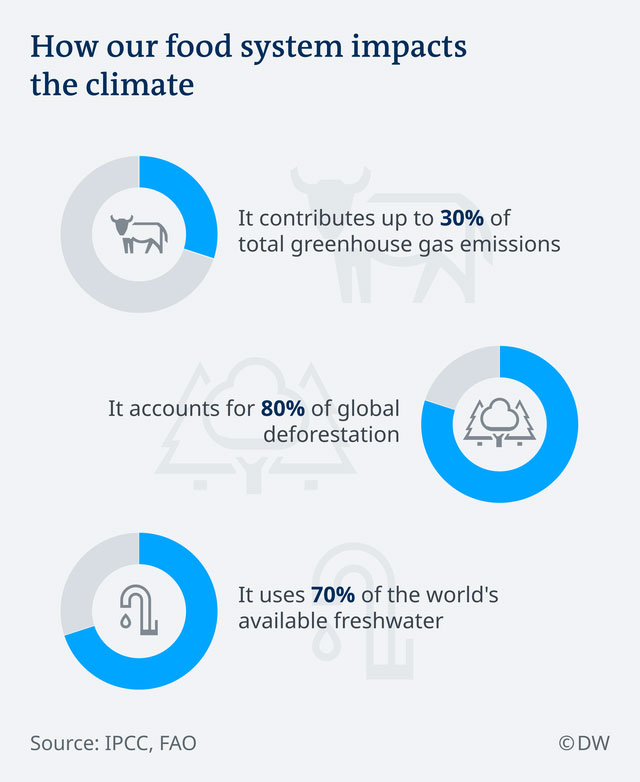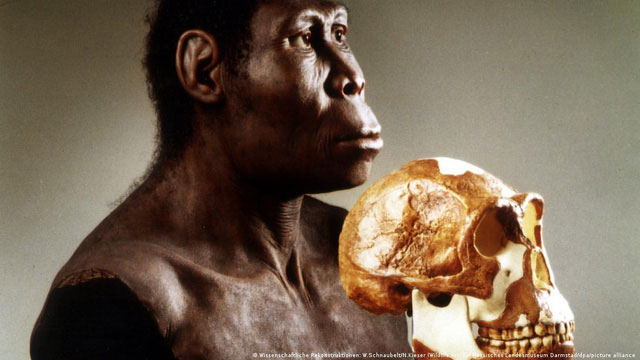Humans have been consuming meat since prehistoric times, and meat consumption has been increasing steadily. In the past 50 years, global meat consumption has reached approximately 350 million tons per year, according to the Food and Agriculture Organization (FAO) of the United Nations.
Current projections suggest that by 2050, the world will require up to 455 million tons of meat per year.

In the past 50 years, global meat consumption has reached approximately 350 million tons per year – (Photo: AFP).
Why do humans consume so much meat despite knowing its detrimental effects on the Earth and health?
Inefficient Food Source
Scientists have long expressed concerns about the environmental impact of high meat consumption, particularly from industrially farmed animals.
Meat is considered a “less efficient” food source because it requires significantly more energy, water, and land to produce compared to other foods we consume.

Diagram of the impact of food sources on the environment – (Photo: IPCC – FAO)
A study on agricultural practices revealed that beef production generates greenhouse gas emissions six times greater and requires 36 times more land compared to producing plant-based proteins, such as peas.
If meat and dairy consumption were eliminated, global agricultural land use could be reduced by over 75%.
Do Humans Eat Meat Due to Psychology?
Why do most people continue to eat meat? Benjamin Buttlar, a social psychologist from the University of Trier in Germany, suggests that this is due to habits, culture, and cognitive needs.

Humans are consuming more and more meat – (Photo: AFP).
Research indicates that men often justify meat consumption as a natural, normal, and necessary part of their diet. This reflects a masculine bias.
What is the Relationship Between Meat Consumption and Human Evolution?
Scientists have long believed that meat consumption played a role in the development of our ancestors’ body shape, similar to modern humans. Additionally, eating meat and bone marrow provided Homo erectus with the necessary energy to develop and sustain a larger brain around 2 million years ago.
However, a recent study has questioned the significance of meat consumption in our evolutionary process.
The study analyzed the number of fossils and butchered animal bones found in major research areas in East Africa, dating from 2.6 million to 1.2 million years ago. It showed that meat consumption increased alongside the emergence of Homo erectus.

Eating meat may not have contributed to our brain development – (Photo: PICTURE ALLIANCES)
Briana Pobiner, a paleontologist at the Smithsonian National Museum of Natural History in the United States and co-author of the study, stated: “While Homo erectus consumed more meat, it may not have been the reason for the evolution of our brains. We did not observe a significant increase in human brain size around the time they began eating meat.”
There is some evidence suggesting that early humans began cooking food around the time their brains were getting larger. Cooking food releases additional nutrients and speeds up digestion, as cooked food is softer and easier to chew.
Pobiner also believes that human evolution is attributed to a combination of a healthy diet rather than solely meat consumption.


















































